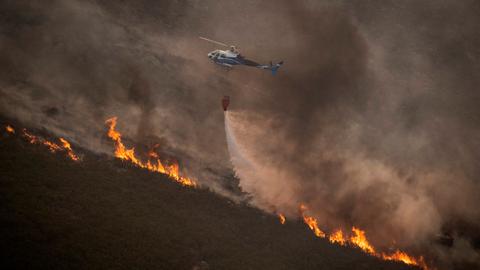The Russian economy has been deeply damaged by sanctions and the exit of international business since the country invaded Ukraine, according to a new report by Yale University business experts and economists.
Even though Moscow has been able to pull in billions of dollars from continued energy sales at elevated prices, largely unpublished data shows that much of its domestic economic activity has stalled since the Feb. 24 invasion, according to the report released in late July.
"The findings of our comprehensive economic analysis of Russia are powerful and indisputable: Not only have sanctions and the business retreat worked, they have thoroughly crippled the Russian economy at every level," said the report from the Yale School of Management.
"Russian domestic production has come to a complete standstill with no capacity to replace lost businesses, products and talent," the 118-page report said.
The report was produced by Jeffrey Sonnenfeld, president of the Yale Chief Executive Leadership Institute, and other members of the institute, a mix of economists and business management experts.
With Moscow having halted or pared the release of official economic statistics, including crucial trade figures, Sonnenfeld's group tapped into data held by companies, banks, consultants, Russian trading partners and others to build a picture of Russian economic performance.
They also said they obtained unreleased data from experts on the Russian economy, and data in other languages which supported their conclusions.
Even if Russia is able to earn more foreign exchange on gas and oil exports, that has not offset the impact of Western sanctions.
And, they argue, the country's dependence on Europe to buy 83% of its energy exports leaves it under a greater medium-term threat.
"Russia is far more dependent on Europe than Europe is on Russia," they said.
Car industry crashes
Russia largely survived Western economic sanctions after Moscow's 2014 seizure of the Ukraine region of Crimea.
President Vladimir Putin pushed a program of replacing some imports with domestic products and built up a cushion of financial reserves.
But the country's industry remained heavily driven by foreign capital investment and the import of higher-tech inputs that Russia had not mastered, like semiconductors.
The barrage of deeper sanctions after the invasion took aim at both of those vulnerabilities, the report said.
Some 1,000 foreign companies halted their activities in the country, potentially impacting up to 5 million jobs, according to the report.
Industrial output plunged, and Russian retail sales and consumer spending have fallen at an annual rate of 15-20%.
Imports have plunged across the board, the report said; crucial imports from China fell by more than half.
A key example of Russian problems, according to the report, is the automobile sector.
Car sales went from 100,000 a month to 27,000 a month, and output has stalled due to a lack of parts and machinery.
Without access to imported components, Russian producers are putting out cars without airbags or modern anti-lock brakes, and only with manual transmissions.
Threat to gas revenues
The report challenged the belief that the Russian economy was surviving thanks to the tens of billions of dollars the country reaps each month from oil and gas exports.
Last week the IMF said the Russian economy, though contracting, was doing better than expected due to its energy and commodity export income.
The Yale report said data indicates energy revenues have been falling for the last three months.
If Western Europe succeeds in cutting itself off from Russian natural gas, Moscow faces an "unsolvable" situation with a lack of a market for its output, according to the report.
"Any decrease in oil and gas revenues or oil and gas export volumes would immediately put a strain on the Kremlin's budget," it said.



